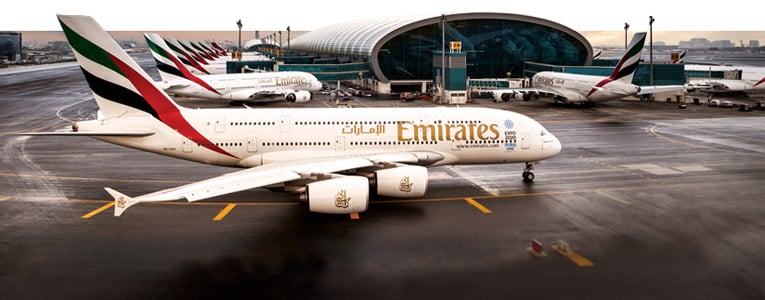Military
Battle Between US, Persian Gulf Carriers Over Airline Routes Heats Up
Published:
Last Updated:

The white paper documents what the airlines claim is a misuse of the Open Skies agreement signed by the United States in 1995 and by Qatar and the United Arab Emirates (UAE) between 1999 and 2002. Qatar Airways and the two UAE carriers, Etihad and Emirates, are the Gulf carriers covered by the agreement.
Here is the U.S. airlines’ claim:
[T]he Open Skies agreements … place no restrictions on the ability of the airlines of Qatar and the UAE to provide direct service between their home countries and the United States. They place no limitations on destinations, frequencies, routes or how airlines price their services. They also include unlimited “fifth freedom” and “sixth freedom” rights. These additional rights vastly expand the value of the agreements for Qatar and the UAE … . The fifth freedom rights effectively allow Qatari and UAE airlines to provide commercial service between the United States and Europe (or the United States and Asia) as if they were U.S. or EU (or Asian) carriers. The sixth freedom rights allow them to aggregate local traffic flows from any country “behind” Qatar and the UAE, such as India or Australia, and transport them to/from the United States as if they were U.S., Indian or Australian carriers.
ALSO READ: Air Travel Surges to Highest Level in 7 Years
As a result of the agreement, the three Gulf carriers offer an average of about 25 round-trip flights a day to several U.S. cities while U.S. carriers average just two round-trip flights a day to Dubai due to “the low level of demand for travel originating or terminating” in either Qatar or the UAE. Because the Gulf carriers are allowed the fifth and sixth degrees of freedom already noted, they are able to price fares lower by flying international routes through their own hubs.
That may result in lower fares for consumers, but the U.S. carriers argue that the subsidies to the Gulf carriers are “fueling a massive expansion in the Gulf carriers’ fleets … and seriously distorting the commercial marketplace to the detriment of U.S. and third-country airlines.”
From a consumer’s point of view, the added competition from the Gulf carriers is a good thing. According to a report at travel industry platform Skift, a round-trip flight from New York to New Delhi on April 1 would cost around $1,100 on any of the three U.S. carriers and less than $900 on an Emirates Airbus A380 super-jumbo jet.
And that brings up a third pair of actors in this argument: aircraft makers. Both Boeing Co. (NYSE: BA) and Airbus have a big stake in the outcome. Gulf carriers have placed orders for hundreds of new planes on the two makers.
Boeing has received orders for 230 new planes from Emirates since 2010 and has delivered 52 in the same period (some from prior orders). Emirates placed an order for 150 of Boeing’s 777X airplanes last July, and the airline’s CEO is trying to persuade Airbus to upgrade the A380. At the end of February, Airbus had delivered 58 A380s to Emirates and had outstanding orders for 82 more.
The U.S. airlines have already clashed with Boeing over reauthorization of the Export-Import Bank, which many Boeing customers use to guarantee purchases of Boeing airplanes. Emirates received guarantees of more than $284 million from the Ex-Im bank in 2014. That rankles the airlines, even though the guarantees are used to meet competition from the EU’s export credit agency.
None of the Gulf carriers has yet commented on the U.S. airlines’ white paper, saying that they have only just received their copies and promising a full response after reviewing the document.
ALSO READ: Companies Profiting the Most From War
Take the quiz below to get matched with a financial advisor today.
Each advisor has been vetted by SmartAsset and is held to a fiduciary standard to act in your best interests.
Here’s how it works:
1. Answer SmartAsset advisor match quiz
2. Review your pre-screened matches at your leisure. Check out the advisors’ profiles.
3. Speak with advisors at no cost to you. Have an introductory call on the phone or introduction in person and choose whom to work with in the future
Take the retirement quiz right here.
Thank you for reading! Have some feedback for us?
Contact the 24/7 Wall St. editorial team.